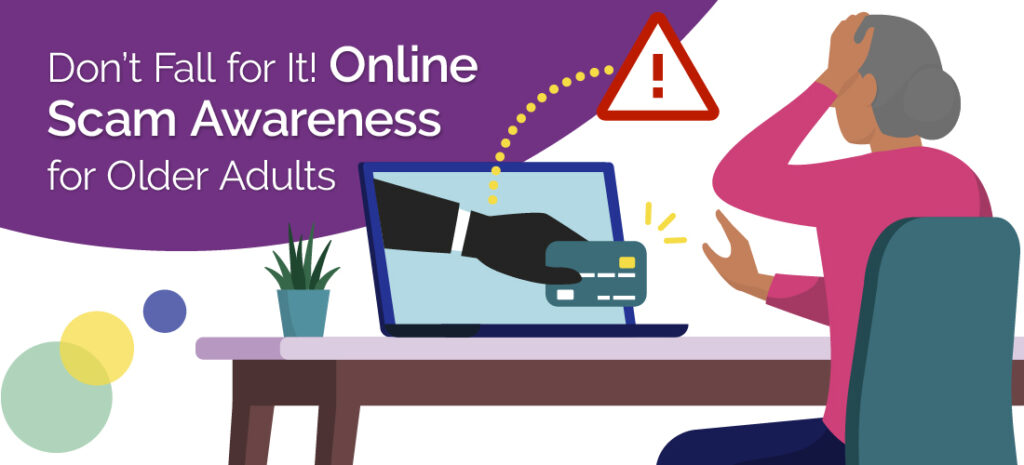
“Click here to win millions!”
“Your free iPad is just one step away!”
“Congratulations, you’ve been selected!”
We’ve all seen headlines like these, and most of us know better than to click. But scammers continue to evolve, and unfortunately, older adults and their family members remain frequent targets of online fraud. As a home care marketing agency, we often talk about how to build trust with consumers—but part of trust-building is helping them stay safe.
If you’re in the business of supporting older adults, you’re also in the business of protecting them from harm—and that includes digital harm.
Scams Are Getting Smarter—and More Expensive
According to the FBI, scams targeting individuals aged 60 and older led to over $3.4 billion in losses in 2023, an 11% increase from the previous year. Seniors are often targeted due to perceived vulnerability and unfamiliarity with new tech tools.
While not every scam is avoidable, awareness is key. Home care agencies can—and should—play a role in educating clients and families about online risks.
Here’s how to help the people you serve spot the red flags.
Common Scams Targeting Older Adults
“Grandma? It’s Me!”
One of the newest and most alarming trends is AI voice scams. Scammers are now using artificial intelligence tools to clone a person’s voice, making it sound exactly like a loved one. They may call pretending to be a grandchild, a child, or even a sibling, often in a state of fake distress, asking for money urgently. These scams can be incredibly convincing and emotionally manipulative. It’s a good idea to encourage families to create a “safe word” that can be used in emergency situations to verify the caller’s identity. Taking a few minutes to set up this system can prevent heartbreaking financial losses and emotional harm.
“You’ve Won a Free Prize!”
Scammers use eye-catching language to make an offer sound too good to pass up. They may impersonate well-known brands or even government agencies to appear legitimate. If someone must pay to claim a “free” gift, it’s not free—and it’s not legit.
“We Need Your Personal Info to Continue”
A telltale sign of a scam is asking for sensitive personal information:
- Social Security numbers
- Bank account info
- Medicare ID numbers
- Credit card data
Remind clients: No legitimate service will ask for this kind of data via unsolicited emails or pop-up links. If unsure, they should ask a trusted family member or care professional to verify.
“Earn Big Money From Home!”
While remote jobs are increasingly common, scammers often prey on individuals hoping to earn extra money. They may promise easy income but ask for payment upfront for “training,” “materials,” or “access.”
If someone is exploring work-from-home opportunities, encourage them to look directly on the websites of well-known companies, rather than relying on third-party sites filled with questionable listings.
What Your Home Care Agency Can Do
Educating clients and their families doesn’t have to be complicated. Here are a few ideas you can implement:
- Include scam alerts in your newsletter (digital or print).
- Share tips on social media—quick reminders go a long way.
- Train caregivers to recognize red flags and speak up if something feels off.
- Host a community workshop or webinar about online safety for older adults.
Your agency’s blog is also a great place to post friendly, informative content that empowers families to help protect loved ones from fraud.
A Simple Rule to Remember
We still find that the best advice is this: If it sounds too good to be true, it probably is. Remind your clients and their families to take their time, verify sources, and never feel pressured to respond quickly to unexpected messages or offers.
For even more helpful information, point them to the Better Business Bureau’s scam tracking resources and scam infographic.
Want to Help Your Home Care Agency Build Trust While Educating the Community?
At corecubed, we specialize in marketing strategies that inform, engage, and empower older adults and their families. Call us at 800.370.6580 to learn how we can help you deliver meaningful messages that matter.
